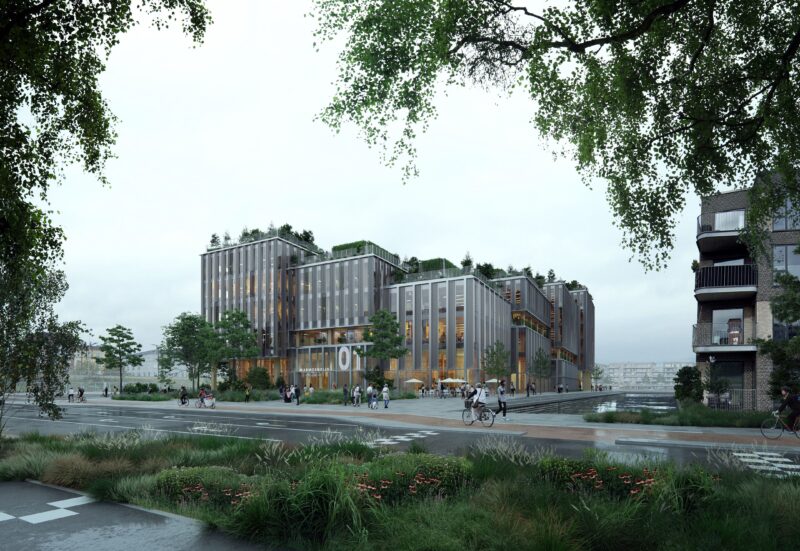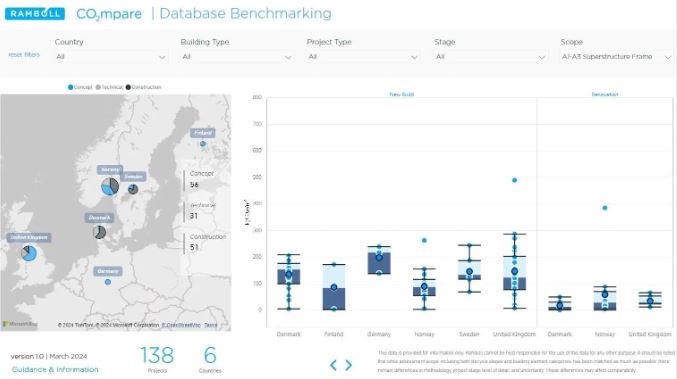Solution provider

Ramboll is a leading international architecture, engineering, and consultancy company, owned by the Ramboll Foundation.
R&D Project
Buildings
Energy efficiency in buildings
Green buildings


Ramboll is a leading international architecture, engineering, and consultancy company, owned by the Ramboll Foundation.
Add the case to your visit request and let us know that you are interested in visiting Denmark
Data plays a crucial role in driving the decarbonisation and resilience of the buildings and construction sector. It informs decision-making and enables the industry and policymakers to draw comparisons and set sustainability benchmarks for specific building types.
However, data availability, quality, and accessibility are often limited and uneven across countries and regions. Additionally, there is a need to harmonise and standardise data to ensure comparability and interoperability between technologies.
Acknowledging these challenges, Ramboll is now sharing its international dataset of carbon emissions for buildings with the industry and governments.
While Ramboll is committed to making its data publicly accessible, it recognises that these efforts mark just the beginning of the collaborative actions needed to decarbonise the built environment.

Ramboll’s carbon assessment database, CO2mpare, allows industry and governments to explore and compare data for carbon emissions across more than 130 buildings projects in six different countries.
Explore the CO2mpare toolWith the launch of CO2mpare, Ramboll aims to provide an interactive benchmarking tool, that can be used to understand the typical carbon for building projects in different countries, typologies and project types. The CO2mpare is the first open-access tool of its kind, providing a considerable number of projects within different building typologies in an interface.
The database facilitates data collection and comparisons across different geographies and typologies and includes data from different carbon assessment methodologies. This data has been instrumental in evaluating Ramboll’s own carbon footprint across its global design portfolio.
Initially focused on Northern Europe and upfront carbon, the tool aims to continually integrate data from most continents with additional scope to strengthen its global dataset.
Ramboll’s carbon assessment database, CO2mpare, allows industry and governments to explore and compare data for carbon emissions across more than 130 building projects in six different countries.
The database currently gathers data from several projects and buildings with data from 138 projects currently represented in the database. Additionally, 10 building typologies are covered in the database, with five different scopes of the carbon assessment currently available.
The database is still a work in progress, and Ramboll welcomes any feedback.